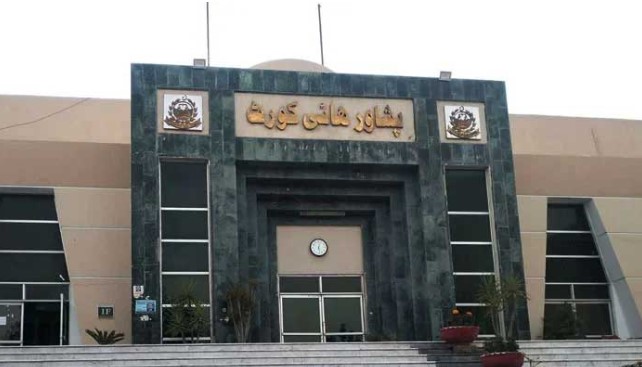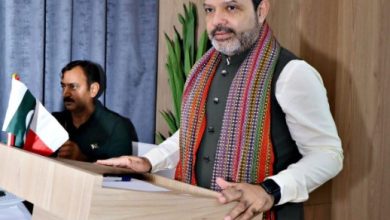
Following many twists and turns, the Peshawar High Court (PHC) on Tuesday directed Khyber Pakhtunkhwa (KP) Governor Faisal Karim Kundi to administer the oath to Chief Minister-elect Sohail Khan Afridi at 4pm on Wednesday (tomorrow).
Announcing the reserved verdict, a PHC bench led by Chief Justice SM Attique Shah directed that if the governor fails to administer the oath, KP Assembly Speaker Babar Saleem Swati should do so.
Moments before the court’s order, PPP Chairman Bilawal Bhutto-Zardari, speaking at an event in Karachi, urged Governor Faisal Karim Kundi — a PPP member — to proceed to Peshawar, fulfil his constitutional duties, and comply with the court’s directives.
The PHC’s order came after a petition was filed by the members of the provincial assembly, including the KP Assembly Speaker Swati, under Article 255 of the Constitution, seeking the immediate swearing-in of the new chief executive.
The petition urged the court to nominate an alternative authority, such as the speaker or another official, to administer the oath if the governor is unavailable.
Speaking to journalists, Kundi — who is currently in Karachi — said that he never refused administering the oath to CM-elect, while affirming that he would reach KP today.
“I have requested the Sindh CM for his plane. My response has also been submitted to the high court,” he said. Kundi reiterated that he would follow the Constitution and discharge his duty as the KP governor.
Senior PTI leader Asad Qaiser hailed the Peshawar High Court’s verdict as a “victory for the rule of law.”
Speaking to the media after the order, Qaiser thanked the PHC chief justice for what he called a “merit-based decision.”
“We have to serve the people,” he said, expressing confidence that Afridi would now “work with renewed resolve.”
Political drama
The political drama unfolded after former KP Chief Minister Ali Amin Gandapur resigned on October 8 on the directives of incarcerated Pakistan Tehreek-e-Insaf (PTI) founder Imran Khan, paving the way for Afridi’s appointment.
Afridi, a relatively new entrant to provincial politics, who began his career in 2015 and entered the assembly in the 2024 general elections, now faces stiff political headwinds. His elevation has drawn sharp criticism from the federal government, which accuses PTI of harbouring sympathies for extremist elements — allegations the party strongly denies.
A day earlier, Afridi was elected as the province’s new chief executive with 90 votes, following an opposition boycott. His rivals — JUI-F’s Maulana Lutfur Rehman, PML-N’s Sardar Shahjehan Yousaf, and PPP’s Arbab Zarak Khan — received no votes as their parties walked out of the assembly.
The election, however, became contentious after Governor Kundi rejected Gandapur’s resignation, citing “discrepancies in signatures,” casting doubt over the legitimacy of the power transition.
PTI, meanwhile, maintained that a chief minister’s resignation does not require gubernatorial approval under the Constitution. Standing by this interpretation, the party moved ahead with Afridi’s election in the absence of opposition lawmakers.
On the same day, in a pre-emptive legal move, PTI filed a petition in the PHC requesting that KP Assembly Speaker Swati — or another appropriate official — be authorised to administer the oath to Sohail Afridi in Governor Kundi’s absence.
Today’s hearing
During today’s hearing, the additional attorney general informed the court that the governor is currently out of the province on an official visit and is expected to return by 2pm tomorrow.
At this, CJ Shah inquired what KP Governor Kundi said regarding the oath ceremony. The additional attorney general replied that the governor has called Gandapur to discuss the approval of his resignation.
“Tell us clearly whether or not the governor expressed consent to administer the oath?” the PHC CJ asked. In response, the additional attorney general said the matter would be decided once the governor returns.
He also informed the court that Governor Kundi has nominated Advocate Amir Javed to present arguments on his behalf, who argued that, “until the new chief minister assumes office, the outgoing chief minister will continue to run official affairs.”
PHC CJ Shah observed that such a situation would only arise if there had been no election. “But in this case, the election has already taken place,” he remarked, adding that other political parties had also submitted nomination papers for the chief minister’s slot.
Salman Akram Raja, representing the petitioner, argued that Gandapur had also admitted resigning as the CM on the assembly floor a day earlier.
“Gandapur himself acknowledged his resignation in the assembly and was the first to cast a vote for Sohail Afridi,” Raja said.
He argued that the governor had raised objections over the signature on the resignation document, adding, “Once Gandapur himself accepted it, the question of signature no longer remains.”
“It is now the need of the hour that the newly elected chief minister takes the oath and the province begins to function normally.”
The petitioner’s counsel argued that the governor has already expressed his intention “not to administer the oath.”
After hearing the arguments, the PHC reserved its verdict.
Meanwhile, the Jamiat Ulema-e-Islam (JUI-F) has also approached the PHC, challenging the election process of the CM-elect.





